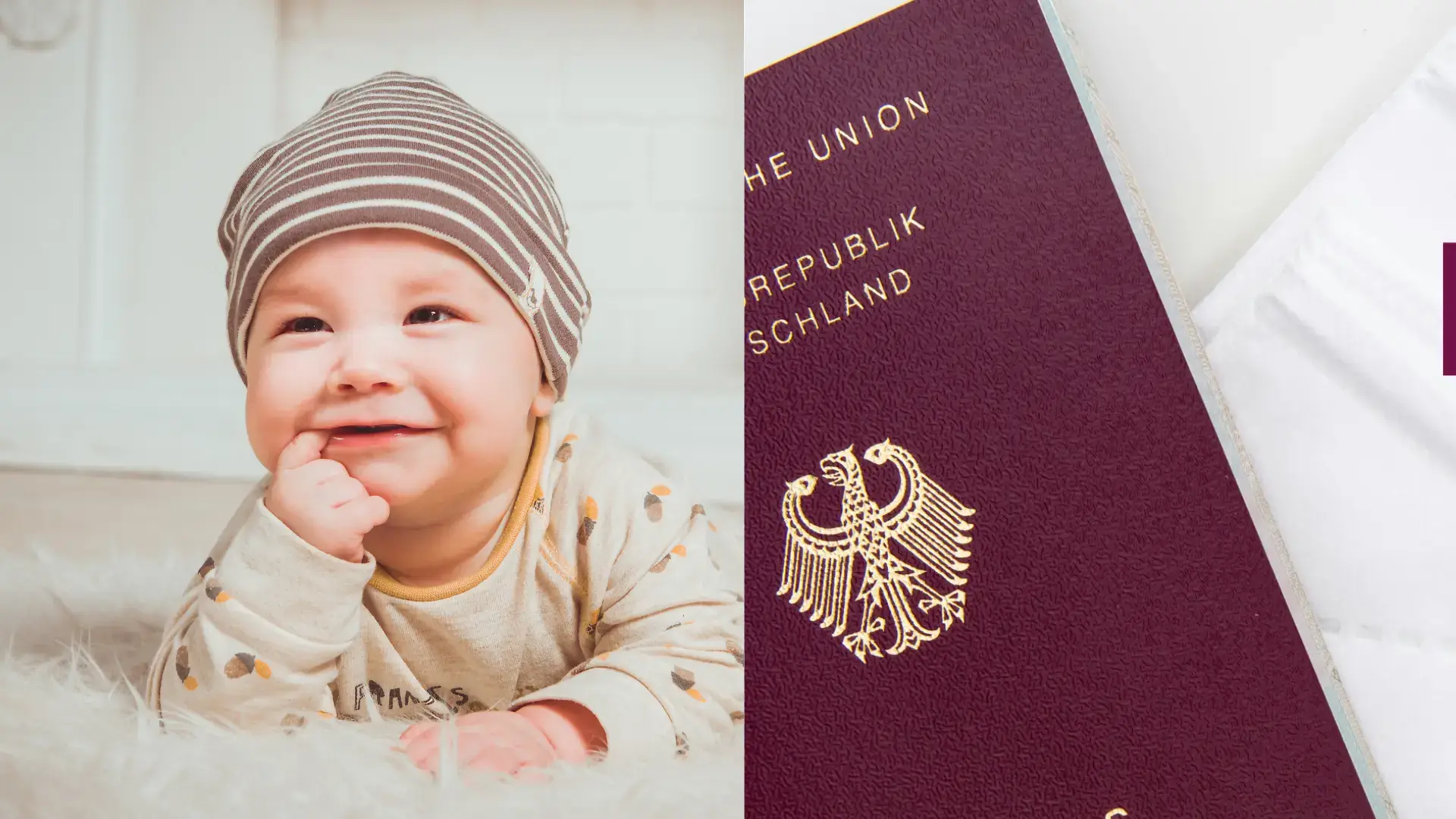German citizenship by birth? Born in Germany? can you get Citizenship? Let’s explore the conditions under which a child can acquire German nationality simply by being born in Germany. We’ll also cover the significant changes brought about by the new German citizenship law passed in 2023 and implemented in 2024.
The Basics of German Citizenship by Birth
German citizenship laws have undergone significant changes over the years, particularly regarding citizenship acquired through birth. Historically, Germany followed the principle of jus sanguinis (right of blood), meaning citizenship was primarily determined by the nationality of the parents. However, since January 1, 2000, elements of jus soli (right of soil) have been introduced, allowing children born in Germany to foreign parents to acquire German citizenship under certain conditions.
The New German Citizenship Law of 2024
The German parliament passed a new citizenship law in December 2023, which came into effect in 2024. This law brings substantial changes to the acquisition of German citizenship, including provisions for those born in Germany.
Key changes in the new law include:
- Reduced residency requirement: The residency requirement for naturalization has been reduced from 8 years to 5 years.
- Dual citizenship allowed: The new law allows dual citizenship for all, eliminating the need to choose between nationalities.
- Language proficiency: The German language proficiency requirement remains, but exceptions are made for those over 67 years old.
- Integration requirement: Applicants must demonstrate commitment to the free democratic basic order.
- Streamlined process for children born to foreign parents: Children born in Germany to foreign parents can now acquire German citizenship more easily.
Conditions for Acquiring German Citizenship by Birth
Let’s break down the scenarios under which a child can obtain German citizenship by birth under the new law:
- At least one parent is a German citizen: If at least one parent holds German citizenship at the time of the child’s birth, the child automatically becomes a German citizen, regardless of the place of birth.
- Born in Germany to foreign parents: Children born in Germany to foreign parents can acquire German citizenship if:
- At least one parent has lived legally in Germany for five years (reduced from eight years under the previous law)
- The parent holds a permanent right of residence at the time of the child’s birth
The End of the Option Model
With the new law allowing dual citizenship, the previous “option model” has been abolished. This means:
- Children born to foreign parents who meet the criteria receive German citizenship at birth.
- They can also retain the citizenship of their foreign parent(s).
- There is no longer a requirement to choose between German citizenship and their other citizenship(s) between the ages of 18 and 23.
This change significantly simplifies the process and allows individuals to maintain multiple cultural and national identities.
Statistical Overview
While it’s too early to have comprehensive data on the impact of the new law, we can look at previous statistics to understand the potential scope of change:
These charts compare the 2020 data with projected figures for 2024, considering the new law’s implementation. We anticipate a significant increase in children acquiring German citizenship at birth due to the relaxed requirements.
Advantages of German Citizenship by Birth
Acquiring German citizenship at birth offers numerous benefits:
- EU Citizenship: German citizens are also EU citizens, granting them freedom of movement within the EU.
- Education: Access to Germany’s excellent and often free education system.
- Healthcare: Entitlement to Germany’s comprehensive healthcare system.
- Career Opportunities: The right to work in Germany and the EU without restrictions.
- Dual Citizenship: The ability to maintain multiple citizenships, fostering international connections.
Impact and Reception of the New Law
The new German citizenship law has been widely praised for its inclusive approach. It recognizes the realities of a globalized world and the value of cultural diversity. However, some concerns have been raised:
- Integration: Critics argue that easier access to citizenship might reduce incentives for integration.
- Administrative challenges: The streamlined process may initially lead to increased workload for immigration offices.
- Political debate: The law has been a subject of political discussion, with varying opinions across the political spectrum.
The new German citizenship law of 2024 has significantly liberalized the process of acquiring German citizenship by birth. Whether through parentage or by being born in Germany to foreign parents who meet specific criteria, obtaining German citizenship at birth is now more accessible than ever. This change reflects Germany’s evolving role as a multicultural society and its commitment to integration.
For those considering having children in Germany or for individuals born in Germany to foreign parents, understanding these new laws is crucial. The allowance of dual citizenship and reduced residency requirements open up new possibilities for many. As always, it’s recommended to consult with legal experts or official government sources for the most up-to-date and personalized information regarding your specific situation.




